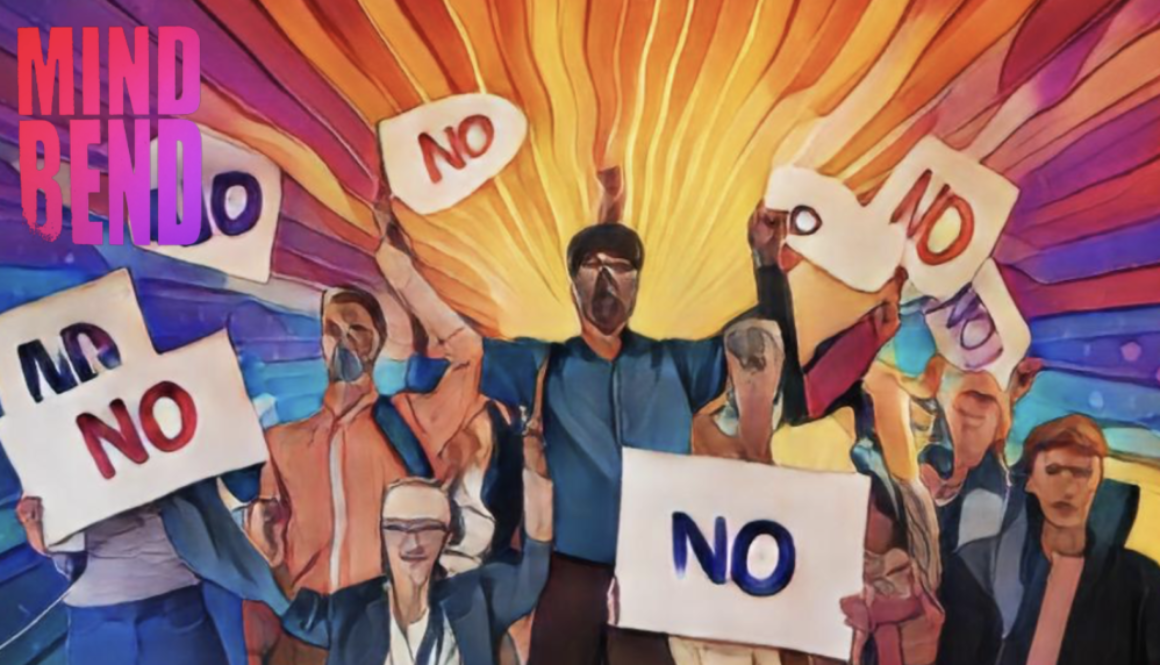Legislative Loss- Massachusetts Votes Against Legalizing Psychedelics, Halting a Pushfor Mental Health Alternatives
Massachusetts voters decisively rejected a measure last Tuesday, November 5th, that sought to legalize certain psychedelic substances for adults over 21, a move that would have expanded mental health treatment options through natural psychedelics. Despite growing public interest in psychedelics as a therapy for mental health conditions, the ballot measure, known as Question 4, faced a setback with 57.5% voting against it.
Had it passed, Question 4 would have allowed adults to legally possess, cultivate, and share specific psychedelics like psilocybin, ibogaine, and DMT. The measure also included provisions to establish a Natural Psychedelic Substances Commission to oversee regulations and ensure safe, licensed access to these substances. But with the defeat of this proposal, Massachusetts has pushed pause on a growing movement to integrate psychedelics into therapeutic and mental health practices.
A Missed Opportunity for Mental Health Options
Advocates of the measure, organized under Massachusetts for Mental Health Options (MMHO), had hoped to make Massachusetts the third state, following Oregon and Colorado, to legalize psychedelics for therapeutic use. Veteran support groups and mental health advocates were at the forefront of the campaign, arguing that psychedelics offer promising alternatives for those battling conditions like PTSD and depression. The failed measure had garnered notable support from political figures, including Senator Elizabeth Warren, who highlighted the need for a thoughtful regulatory approach.
The proposal came in response to a growing body of research indicating that psychedelics can offer profound therapeutic benefits, especially for veterans and individuals struggling with trauma. However, opponents like the Massachusetts Psychiatric Society expressed concern over the potential risks of broad legalization, especially for individuals predisposed to conditions like schizophrenia. Opponents also argued that the ballot’s provisions were vague, particularly regarding home cultivation allowances and regulatory structures, fueling concerns of an unregulated black market.

What Question 4 Might Have Helped Accomplish
Question 4 would have established legal protections for adults to possess up to specific limits of psilocybin, psilocyn, ibogaine, and other natural psychedelics. A regulated network of licensed centers would have allowed supervised use of psychedelics for therapeutic and ceremonial purposes. With a proposed excise tax to fund oversight, local jurisdictions would also have had the option to levy an additional 2% tax if they allowed psychedelic centers to operate within their boundaries.
Notably, the measure would have established a state commission to draft and enforce regulations, with the aim of creating controlled access to psychedelics by 2026. Advocates believe that these substances, when used under the supervision of licensed professionals, could make a difference for people where conventional treatments have fallen short. The ballot proposal also included a provision to create an advisory board focused on public health, equitable access, and safe practices—echoing elements of Massachusetts’ existing Cannabis Control Commission.
Despite these well-laid plans, support waned due in part to uncertainty around the measure’s home cultivation clauses, which permitted adults to grow psychedelics in a designated 12×12-foot space. Critics argued that such lenient rules risked undermining the safety of regulated, supervised usage. Ultimately, this controversy, coupled with the lack of expungement provisions for prior convictions, may have contributed to its defeat at the polls.
Continuing the Fight for Psychedelic Legislation
Following the measure’s rejection, MMHO and its supporters expressed disappointment, acknowledging the challenges ahead but pledging to continue pushing for reform. Nate Clifford, a store owner and advocate in Northampton, expressed frustration with the loss, noting that it denies veterans access to potentially life-saving therapy. Clifford emphasized the need for advocates to collaborate with mental health professionals and to work within the legislative system to bring psychedelic options into the mainstream.
Rep. Lindsay Sabadosa, a vocal proponent of psychedelics in the legislature, echoed Clifford’s sentiments, noting that passing similar legislation will be difficult in the wake of this defeat. Nevertheless, she expressed a commitment to keeping the conversation alive in future legislative sessions, indicating a long-term strategy for building support. By state law, proponents must wait six years to reintroduce a similar measure on the ballot. Until then, advocates hope to see cities across Massachusetts decriminalize psychedelics, much as communities like Northampton, Easthampton, and Cambridge have done to deprioritize enforcement against psychedelic use.

The Broader Context of Psychedelic Reform in Massachusetts
The push for psychedelics in Massachusetts has been growing, supported by incremental steps toward local decriminalization and legislative action. Cities like Somerville, Salem, and Provincetown have passed measures to deprioritize the policing of psychedelic substances, encouraging other municipalities to do the same. Earlier this year, Gov. Maura Healey signed legislation to establish a study group to examine the therapeutic potential of psychedelics for veterans, further underscoring the state’s acknowledgment of the issue’s importance, even if broad legalization remains elusive.
For MINDBEND, this outcome reaffirms the need to closely monitor developments in legislation that impact psychedelics and mental health treatment options. Through our interviews, we aim to inform, educate, and help dismantle the stigmas surrounding these substances, making it clear that psychedelics can be part of a responsible and innovative mental health care landscape.
The defeat of Question 4 is a temporary setback, but the campaign has drawn significant attention to the cause, galvanizing a movement that will likely return stronger and better prepared in future legislative cycles. As Clifford and others continue to press for change, Massachusetts remains a focal point in the national conversation about psychedelics and mental health, a conversation that MINDBEND will continue to follow and share about here.

